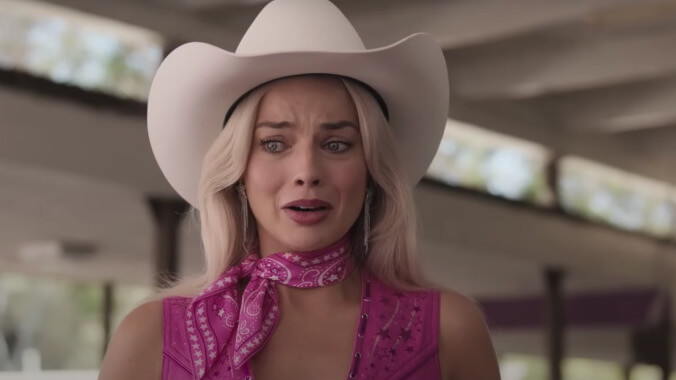“It’s upsetting,” Gerwig said of the since-cut scene, which she had recently rediscovered and sent to Margot Robbie. “It’s wild. It is not in the movie,” Robbie responded. “It’s strange and so touching.”
As Gerwig continued, it became pretty clear why it got the ax. “It says, like, Barbie enters her barbecue area—I don’t know why, I was like, ‘She has a barbecue area!’—and she talks to a woman who was dying,” the director shared. This was, of course, before Barbie Land became the peppy Elysium we know and love today. Still, “that was kind of the jumping-off point,” Gerwig said. “That sort of collision with what mortality means.”
Of course, the space between death and eternal life wasn’t the only contrast Gerwig and her partner/co-writer Noah Baumbach set out to explore in the film. Barbie is in many ways a movie of dichotomies—women vs. men, real vs. imaginary etc. As such, Gerwig shared that the idea for the movie was largely born out of “the collision between the Real World and the sort of fantasy of Barbie.”
“Barbie, even though she’s an icon and a doll and… everybody knows who she is, she doesn’t have a character. She doesn’t have a story,” the director said. “I mean, that’s part of the point of Barbie is that you’re projecting onto her. So we were kind of dealing with that confrontation right from the beginning.” Luckily, everyone knows who she is now.









































